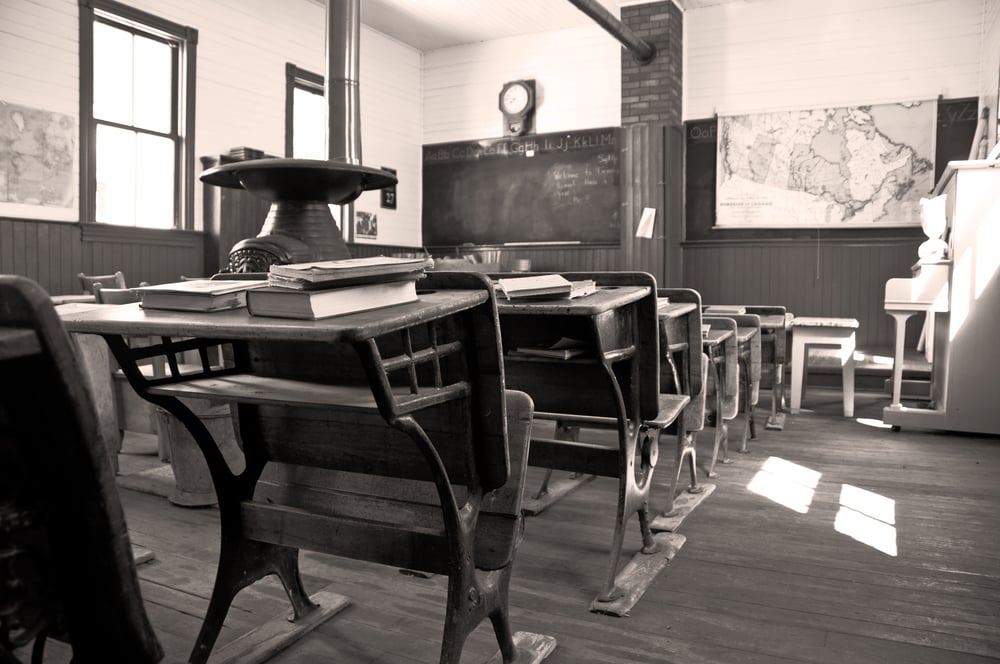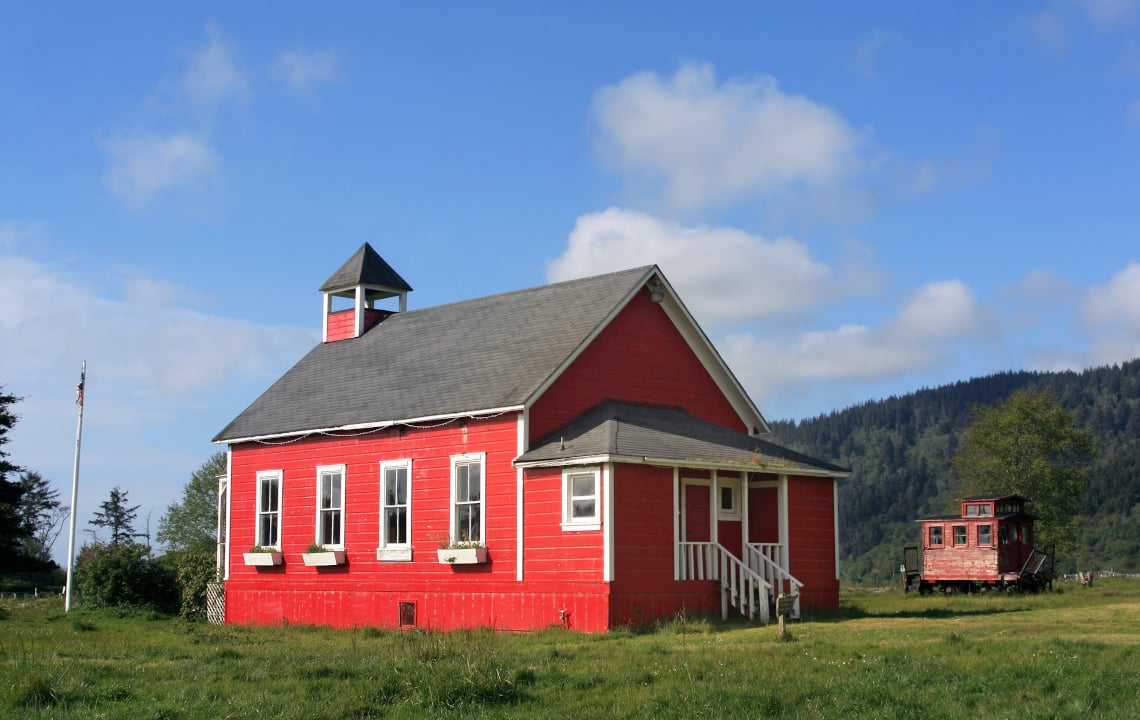Have you ever wondered what school was like in a one-room country schoolhouse? In this nostalgia piece, L. Woodrow Ross shares colorful and beloved memories of his first six school years spent in a rural South Carolina one-room schoolhouse.
Schools were different when, as a young lad, in 1946, I was introduced to the world of books and learning.
I distinctly remember starting first grade at Boiling Springs Elementary School.
My grandfather, George Hampton Ross, was a trustee for the local school, and he delivered a timid young boy to the lion’s den of learning. It was a terrifying experience and a shock to find myself thrust into the society of a bunch of country kids.
First Impressions, Hard Knocks and Best Friends
The teachers were kind, but having to control an unruly group of kids had caused them to be quick to punish offenders.
As a somewhat withdrawn only child, I became a target for the wrath of the other boys.
The older boys would taunt the other boys my age to fight with me. I walked about a mile to school, and inevitably, there would be a group of boys waiting for me on a trail that led through a grove of trees to the schoolhouse.
Being an only child and not having been exposed to fighting and antagonistic situations, I was an easy target. It was a miserable time getting punched and mauled by the boys. After a while, I realized that the only solution was to fight back.
One day another first grader started a fight, and I was frustrated with being a punching bag. I ended up thoroughly trouncing him, and he decided it was not so much fun after all.
That was a turning point, and he later became my best friend.
The old schoolhouse had two big rooms with pot-bellied stoves in each room
There were cloakrooms for coats, hats and scarves. There were two teachers. Mrs. Stewart was a teacher for several grades and also served as the Principal. Mrs. Wilbanks was the other teacher of several grades. The school provided grades 1-7.
The schoolhouse was very old, and the outer walls leaned precipitously. On extremely windy days, we would sometimes be excused due to safety concerns for the structure.

Discipline was at the discretion of the teacher
In those days, discipline was meted out in the form of a paddling.
Rather than parents being upset by the action of the teacher, they were more commonly upset by the infraction of the student. If I incurred the wrath of the teacher, I prayed that my parents would not find out or I would be in line for additional disciplinary action.
The teacher was an honored individual, above reproach, and beloved by the community. In the case of Boiling Springs Elementary School, we did indeed have two of the best.
A humorous event at the schoolhouse involved a preacher and a cow bell...
As stated above, the school was already old and in poor condition. As a matter of fact, my father had attended school there, and it was also used for Sunday Church meetings.
My father, George Edgar Ross, was a prankster and had earned a reputation for such among the surrounding community.
Prior to one Sunday’s meeting, he had snuck one of his father’s cowbells out and had taken it to the schoolhouse.
He used a staple to secure it directly under where the preacher stood and ran a cord through additional staples to a spot near a seat in the back of the room. He pulled the cord up through a knothole and used a small stick to keep it from falling back through the hole.
On Sunday morning, he made sure to sit in the back where the cord terminated. He placed the cord between his bare toes, and when the preacher reached a distinctly thunderous point in the sermon, Dad rang the bell vigorously.
The service was disrupted, and an old spinster lady said, “I bet that Edgar Ross did that.” She promptly went outside and peered under the floor, and saw the bell.
When the bell was retrieved, my grandfather identified it as his, and he took great pains to administer sufficient punishment to guard against any further misuse of the bell.
Looking over my left shoulder, I can see the bell sitting on my bookshelf.

How the old school house property compared to the schools of today
- There was no lunch room — sack lunches were the rule of the day.
- No playground — unless you would call a rough, grassy ball field a playground.
- No play or sports equipment — Girls would play tag and skip rope, and a few tomboys would play baseball. One girl was one of the best hitters on the field (Cora Ward). She was the aunt of the boy who made my life miserable early on, and who later became my best friend (Carlos Ward).
- The property was overgrown with privet hedges, blackberry vines, and other wild growth — At recess, we would run forth to play baseball, climb trees or play in the woods. When recess ended, a cowbell would be rung to resume classes. It was the delight of a student to be able to ring the bell to summon the others into class.
The End of an Era
Prior to entering the 6th grade, the school was closed, and students were bussed to Taylors Elementary School. There I entered the 6th grade and later attended High School there.
The old school building and property were sold, and a family used it as a residence for a number of years. Later it was consumed in a fire.
Conditions have changed. Society has changed. Schools are more regimented, and facilities have been modernized, but these rural schools served as a starting point for many students.
Fond memories of them are forever in our hearts and minds.




.jpg)
